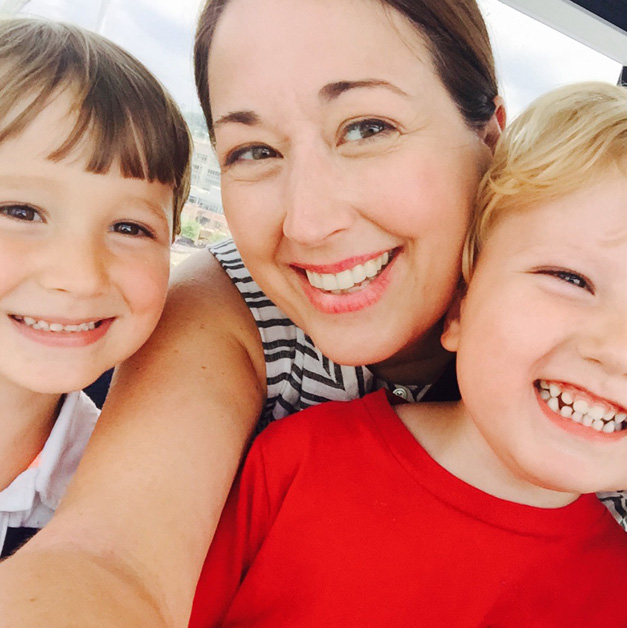
Have you ever been told, “You can’t compare your children?” I am sure that if you are reading this post, that sometime, somewhere, someone has said these exact words to you.
Surely, like many moms blessed with a second child, you’ve spent countless hours waiting, praying and planning to do it all over again that replaying in your mind memories of your first is only normal. So, what happens when you swear you remember your first doing things a lot earlier than your second? Is there really something to what the other moms in your mom’s group are saying about second children developing slower? Feel like you are not giving your later-born child as much attention as your first-born and this will cause them to develop slower?
Believe me; I am raising my hand up as I write this!
If you are among those moms who feel that your first was saying more by this time or understood a lot more and you are worried here is what you should know…
•Many research studies have looked at birth order differences and while there are some noted differences between first-born and second- and third-born children, a delay in language development has not been found.
•First-born children demonstrated a greater level of vocabulary and grammar at an earlier age. Assumed to be because of the individual attention and language model brought down to their level.
•Later-born children demonstrated a greater level of conversational skill at an earlier age. Assumed to be because they are able to witness conversations of you and their older sibling.
•First-born children may reach 50-words quicker than later-born children, however, later-born children catch-up without any lasting effects.
Okay, so good information, but how do you know if there still is a problem to be concerned about?
Instead of comparing your two children, re-arrange your thinking to compare them individually to language development milestones for his/her age. This way, we can allow for your precious one’s individual differences to occur and only worry if they are not meeting the milestones on time.
Speech Pathologists think in terms of Receptive and Expressive Language skills. Receptive Language can be described as language that your child understands (words, directions, questions, etc.) Examples in everyday life can include: asking your child “Where are your eyes?” and they point to their eyes; when you give a direction like “Go get you shoes?” and they go find them and bring them to you; asking a question “Do you want a cookie?” and they say “yes.” Typically, most kids will understand something (receptive language) before they actually use it (expressive language).
Expressive Language skills therefore are language that the child uses/says. Everyday life examples are naming objects and actions (cat, dog, eat, jump); making comments (“its pretty”, “I like it”); asking for things (banana, please?); asking for information (“what’s that?”); asking for more (“more juice”). Typically children will use more nouns (person, place or thing) before verbs (action words) when they are beginning to use their expressive language.
Here are some milestones by age.
By 12 months your child should…
Understand
•Common everyday objects i.e.: cup, ball, book, shoe
•Follow routine directions and questions i.e.: “come here,” “sit down,” “want more?”
•Play along with simple games such as “Pat-a-cake” and “Peek-a-boo”
Use
•Gestures to communicate (wave “bye –bye”, raise arms to be picked up)
•Has one to two words by first birthday (“mama, dada, up, bye-bye, uh oh”)
•Babble strings of sounds together that sound like speech (“bababa” “titit”)
By 2 years of age your child should…
Understand
• Point to body parts when you name them (eyes, nose, ears, mouth, etc.)
•Point to pictures in books (ball, cookie, cat)
•Follow simple commands (“Get your shoes,” “Throw the ball”)
•Understand simple questions (“Where’s your cup?”)
Use
•Two-word sentences (“Me do.”, “Mommy up”)
•Use two-word questions “Go car?”, “Milk please?”, “What’s that?”)
•They should add more and more words to their vocabulary every month
•Uses a variety of consonant sounds at the beginning of words (p, b, m, t, d, n, w, h)
For a more comprehensive listing of Birth to 5 years go to The American Speech and Hearing Association (ASHA) website at:
http://www.asha.org/public/speech/development/chart.htm
If you feel your child isn’t meeting these milestones, please do not listen to well-intending family members and friends who tell you that “they’ll grow out of it” or “it’s just because their older sister/brother does all the talking for them.” This is more than likely NOT the case. Please speak to your Pediatrician regarding your concerns and ask for a referral to a Pediatric Speech-Language Pathologist who has been trained to know differences in individual development and can inform you of what step to take next. Trust us, we love to give the families good news that their child is doing just fine, as well as to share what things can be done at home to promote the next step of development. We’d much rather these visits in our daily practice than those of children who “did not grow out of it.” Early intervention has been shown to have the greatest success!
One last note…
Don’t forget to celebrate the differences that make your children unique. Within all families are those who are good at Math and Science as well as those that are much better in Language Arts and History. Personally, my two girls couldn’t be more different from each other. When they each achieved their first smiles, laughs, and speech and language milestones makes them each unique. As long as they are doing what they should be by each month of life, it will make their baby record books tell a different story.




Hmmm, good food for thought. I find myself comparing my kids’ speech a lot in my mind. For us, our older was definitely farther behind in speech than his younger sister. I honestly think that personality has a lot more to do with anything than their place in the family. She is just naturally more conversational than he was. Or maybe gender. Thanks for the info, it seems like Dr.’s were expecting unrealistic expectations (like them telling us he had to have 20+ words by his 1st birthday!) 🙂
You are absolutely correct and thank you for your comment! You have also given me two great ideas for future articles (coming soon). Gender differences and personality do in fact play a role, however, we always want to make sure that despite these differences they are meeting the language targets on time. My oldest hit her milestones it seems just about 1 day before each “deadline” (made me crazy as a speech pathologist as you’d think she should have been so far advanced considering that she received “therapy” since birth, but she has always been a more motor child and has been at least 2-3 months advanced in these areas), whereas my youngest has been way ahead of the game in her language development. Also neat to see that in your case the birth-order research held up in that your second was much more conversational. Thanks for reading and keep letting me know what you’d like to read about next! – Jaclyn Zarling, M.S., CCC-SLP